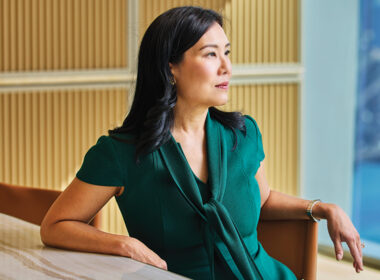In many ways, social can be seen to be like having a shop front. Without a shop front how do people know you exist?
Many in the profession approach social media with justified trepidation, but those who embrace it are reaping the rewards.
Algorithms, click-through rates, lead magnets and sales funnels. This is social media speak and, increasingly, lawyers are expected to become conversant in it. Social media platforms like Facebook, Twitter, LinkedIn and Instagram have exploded, providing lawyers with new opportunities. Whether it is sharing their opinions with the masses, publishing content, or marketing themselves and their businesses, it is instantly possible. While social media gives lawyers new ways to conduct themselves, on the flip side they must also be mindful of ethical obligations when posting. So, is there a happy medium between the two positions and how it can best be reached? And do lawyers even need to be on social media at all?
To social or not to social?
The NSW Office of Legal Services Commissioner (OLSC) published a practice note in 2015 to provide guidelines around the use of social media. The laundry list of issues to consider in the practice note includes whether the post will benefit your clients and practice, and whether it complies with ethical obligations. The OLSC urges lawyers to appreciate and manage the risks that may arise with the careless use of social media. Look no further than now suspended barrister Charles Waterstreet for a cautionary tale. Waterstreet, who allegedly posted comments and photographs related to the Glen McNamara and Roger Rogerson trial on his Instagram account in 2015, was the subject of possible contempt of court proceedings by the Supreme Court of New South Wales.
Consider also the six political candidates who withdrew from the recent Federal election campaign because of skeletons in their social media closets. In some cases, comments made many years prior ended political aspirations. It is not a giant leap to speculate that we may see similar issues in the legal profession in coming years, where careless social media comments made in years gone by could defeat the aspirations of wannabe members of the judiciary. This trend is evident in other industries, most notably Israel Folau’s career-ending post. So what is appropriate and where is the line?
Clarissa Rayward, also known as “the happy family lawyer”, has built her legal empire, Brisbane Family Law Centre and Happy Lawyer Happy Life, off the back of a social media strategy.
She regularly runs social media workshops for lawyers. Brisbane-based Rayward refers to her number one “don’t” on social media as “the Courier Mail test”.
“The test is this,” she explains. “Insert the name of the significant newspaper in your local area [such as The Sydney Morning Herald]. If the thing you are about to do on social media were on the front page of your local paper tomorrow, would you care? That is your test of whether you should or shouldn’t post.
“Some people are happy to be controversial. If they are happy being on the front page of a national newspaper, after applying the Courier Mail test, that is a matter for them, but it may come with consequences.”
Michael Bromley, CEO of Beyond Billables, a branding, marketing and content creating agency for lawyers, agrees with Rayward. His view of social media is pragmatic.
“Social media is really just another term we use for the current state of the internet. It is the place where people’s attention is focused, so for any service provider or business of any level, if you want to have a profile, it’s important to have one on social media,” he says.
“In many ways, social can be seen to be like having a shop front. Without a shopfront how do people know you exist?”
Because social media is so normalised now, Bromley believes the debate about whether to use it has almost become redundant.
“There have been firms grown and sold for the last decade, which made millions off social media. It’s crazy that we are still talking about it as a thing. It has almost become like asking if you should have a website,” he says.
“A lot of that I put down to the way lawyers in some areas have looked down their noses at lawyers in other areas of the law who had to market for work – personal injury lawyers and anyone consumer-facing are a good example. For lawyers at big firms who have no control over marketing or no need to do it I can understand the lack of understanding, but for a profession as a whole which by-and-large deals directly with consumers, I think there has been a bit of ego around not using it because of the overall view of advertising as being beneath them.”
A 2018 report by Smart Insights based on statistics gathered by Social Pilot supports Bromley’s view. The report states that 75 per cent of Instagram users take action after being inspired by a post, such as visiting the website or telling a friend; 93 per cent of social media advertisers are using Facebook ads; and the industry with the highest click-through rate for ads is the legal profession.
Are the results there?
With experts declaring the use of social media as a good thing and some statistics reflecting that, what are practitioners “out in the trenches” of day-to-day legal practice saying?
Courtney Bowie, Founder and Principal of Her Lawyer, says most new clients come via Facebook networking groups, while Laura Vickers of Nest Legal says that “60 per cent of our wills files come from our presence on social media, yet conveyancing is at around the 15 per cent mark”.
Shelley Johnston of Clearly Legal echoes Bowie’s experience. “Networking within Facebook groups has been one of my biggest sources of work,” she says.
“I think it works because you develop an online relationship with the other members of the group, who get a sense of ‘knowing’ and trusting you. Instagram, I have found, mainly helps from a branding perspective, but it is always a good way to stay connected with existing clients.”
 Michael Bromley
Michael Bromley
A new community
Bowie and Johnston both attest that their best results seem to arise from active participation in social media communities like Facebook groups as opposed to straight-up paid advertising.
Rayward also identifies this trend. “One of the benefits of social media is the various communities. Aside from general groups, there are groups of lawyers appearing on the platforms,” she says. “[Social media] has become a way to build a collegiate profession. All over the internet there are groups being formed such as New Law Chambers, Ladies who Lawyer, and Lawyer Mums Australia, which help lawyers reach out to other lawyers for support”.
Rayward runs her own online group, the Club. With more than 120 members across Australia, the Club provides a community for like-minded lawyers who connect via social media.
Jennifer Harris, Special Counsel in the Clayton Utz Sydney real estate group, says of her membership, “I’ve been in the Club for almost two years now. A big part of my career is local government, procurement and infrastructure deals. But I also have a particular interest in wellness, mentoring and really shaping the culture we want to see in our firms.
“I wanted more of that for myself, so I joined the Club. I was after connection on a large scale with other lawyers all over the place doing law differently to me. I wanted to understand the differences and similarities and really see that we are all in this together and we are stronger together.”
Brendon Foyle, Principal of Legal Elements, echoes Harris’ sentiments. “The Club throws the traditional legal community contact out the door and opens new freedom in relationships with colleagues in real-time, open communication that is on point.”
A new way to do other things
Social media is not only about obtaining clients. It can be about recruiting employees. Rayward conducted her last employee recruitment solely through her own social media channels via a video call out for candidates. Apart from the obvious recruitment costs saving, this had other benefits.
“Social media is a massive help to recruit staff. The most recent job ad I put up was only through my platforms. My online community is very strong and engaged. The quality of the candidates I got was incredible,” she says.
“The reasons these people wanted to work at my firm, such as my values and the way I work, were already known to them through my social media platforms so the time it saved to narrow it down to six candidates to interview was extraordinary.”
The future
Social media is more than pictures of your latest meal. It can be used to build a sense of community and belonging in addition to marketing products. Provided it is used mindfully and in compliance with professional ethics as a primary consideration, social media can be an asset to your law firm to attract clients and talent.
“It is important that you monitor your own personal social media use and regulate it in accordance with your values,” says Bromley. “At the end of the day, what you post is going to be a reflection of you, so you need to be conscious of this – especially in a profession that is particularly sensitive and conservative.”
Rayward says lawyers should see social media as an “amazing opportunity to tell stories, build a brand and connect with people”.
“Embrace it for what it is and use it to share parts of your life beyond what the very rigid perspective of a lawyer is,” she says. “So much of the work I do now is derived from my social media profile and the use of social media. The majority of my clients are either direct referrals or those who have come to me because of the brand I have built as the Happy Family Lawyer and all that sits around that.”




